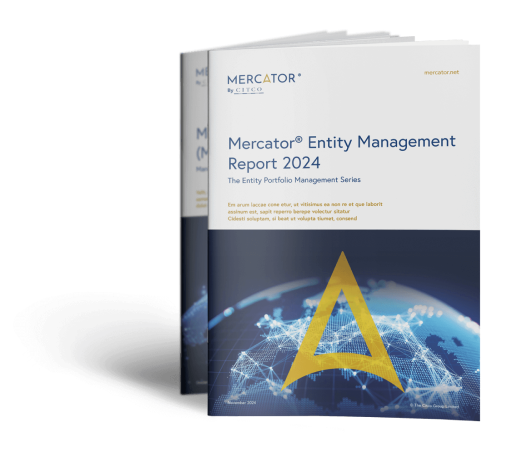The information contained in this document is marketing material and for informational purposes only. The information contained in this document is presented without any warranty or representation as to its accuracy or completeness and all implied representations or warranties of any kind are hereby disclaimed. Recipients of this document, whether clients or otherwise, should not act or refrain from acting on the basis of any information included in this document without seeking appropriate professional advice. The provision of the information contained in this document does not establish any express or implied duty or obligation between Citco and any recipient and neither Citco nor any of its shareholders, members, directors, principals or personnel shall be responsible or liable for results arising from the use or reliance of the information contained in this document including, without limitation, any loss (whether direct, indirect, in contract, tort or otherwise) arising from any decision made or action taken by any party in reliance upon the information contained in this document. © The Citco Group Limited, December 2024.
Indonesia – UBO Regulation 2025 Update
The Indonesian Ministry of Law and Human Rights has issued Regulation 2/2025, updating the Ultimate Beneficial Ownership (UBO) Disclosure rules.
This new regulation, effective the 4th of February 2025, expands the scope of entities required to report, clarifies UBO definitions, introduces new filing processes, and enhances penalties for non-compliance. The primary aim is to improve transparency and combat financial crimes.
Scope and Applicability
The regulation now applies to a broader range of entities, including:
- Limited Liability Companies (PTs)
- Foundations (Yayasan)
- Associations (Perkumpulan)
- Cooperatives (Koperasi)
- Limited Partnerships (Persekutuan Komanditer)
- Unlimited Partnerships (Firma)
- Individual Companies (Perseorangan Perorangan)
- Civil Partnerships (Persekutuan Perdata)
This expanded scope now encompasses various business structures, including some Micro, Small, and Medium Enterprises (UMKM).
Key Changes
1. UBO Definition:
The regulation maintains the core concept of a ‘Beneficial Owner’ (Pemilik Manfaat) as an individual who ultimately controls or obtains benefits from a company or legal entity.
A Beneficial Owner is an individual who, directly or indirectly, fulfills one or more of the following criteria:
- Has the right to appoint or dismiss the directors, board of commissioners, management, patrons or supervisors of the corporation
- Has the ability to control the corporation
- Has the right to receive or is a recipient of benefits from the corporation
- Is the beneficial owner of the shares
- Meets other criteria as stipulated by the Minister of Law and Human Rights
The regulation now emphasizes the prohibition of nominee arrangements, which are agreements or arrangements that confirm share ownership in a limited liability company is for and in the name of another person.
2. Filing Process:
- Annual reviews: Are required one year after the last UBO review
- Change-driven updates: Information must be updated within three days whenever changes in the beneficial ownership occur
- Record Maintenance: Companies are required to keep supporting documentation for beneficial ownership information
- Self-Compliance Model: The regulation shifts towards greater corporate responsibility for compliance
- Risk-based Verification: A new framework is introduced to assess risks related to money laundering and terrorism financing, involving corporations, notaries, the Minister of Law and other relevant authorities.
Actions Required
Companies should review their existing UBO registrations to ensure compliance with the new regulation.
They should be prepared to:
1. Conduct annual reviews of their UBO information, with the review due one year after the last UBO assessment.
2. Report any changes to UBO information within three days of occurrence.
3. Maintain supporting documentation for their beneficial ownership information.
4. Adapt to the self-compliance model, which places greater responsibility on companies to maintain accurate and up-to-date UBO information.
Risks of Non-Compliance
Administrative sanctions for non-compliance include:
- Written Warning: Issued via AHU online or email
- Blacklisting: Announced on the AHU official website
- Blocking AHU Online Access: Restricts legal administrative duties
Sanctions are typically imposed progressively but can be immediate in certain cases. They are revoked once the corporation reports correct beneficial owner information. Blocked or blacklisted corporations remain so until compliance is achieved.
How Mercator® by Citco Can Help
Mercator is ready to assist with the necessary process of filing UBO information in light of these new requirements. Our team can help ensure compliance with the updated regulation, including timely reporting of changes and maintenance of required documentation.
Contact mercator@citco.com for more information.

